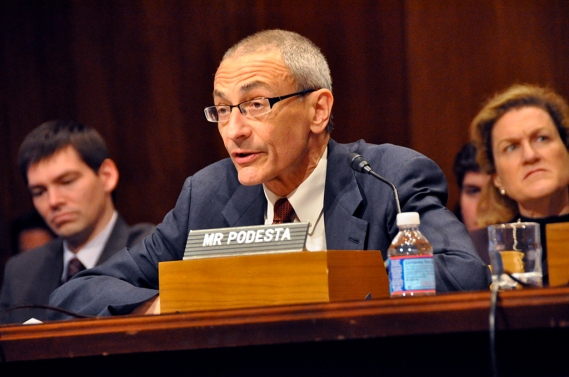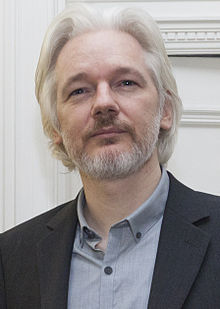Intelligence agencies in the US have concluded with ‘high confidence’ that Russian officials covertly interfered in the 2016 general election with an aim to aid a victory for Donald Trump.
In October of this year, the website WikiLeaks published what it claimed were e-mails belonging to Hilary Clinton’s campaign chairman, John Podesta. This came out days after the US accused Russia of interfering in the election campaigns.

The e-mails were leaked though the site steadily in the final lead-up to the election. They did not contain any incriminating material, but did reveal that Democratic National Committee figures had colluded in order to weaken the position of Clinton’s rival, Bernie Sanders.
Moreover, they included examples of collusion with the media and Clinton’s campaigners to stay one step ahead of Trump in debates.
All of the information released was effectively damaging to Clinton. The content of the e-mails lead many to believe she was untrustworthy as a presidential candidate, and the damage to her reputation was clearly irreversible.
According to a US official speaking to The Guardian, ‘that was a major clue to their [Russia’s] intent. If all they wanted to do was discredit our political system, why publicise the failings of just one party, especially when you have a target like Trump?’
A second official told the paper that the conclusions about Russia’s motives did not necessarily mean that the intelligence agencies believed Russia’s covert efforts had any significant impact on the result of the election.
According to The Washington Post, the agencies are basing their conclusions on a separate finding that Russia also hacked the Republican National Committee’s computers, but did not release any information they found.
The individuals involved in the hacking are known to intelligence already, and have been identified as the actors in this situation. These persons with connections to the Russian government provided WikiLeaks with thousands of emails hacked from the Democratic National Committee.
Meanwhile, the Kremlin have decisively shut-down accusations of hacking. The intelligence agencies do not have specific evidence linking the Kremlin directly to the leaks, a US official told The Washington Post.
Russia has been known in the past to use middlemen to maintain plausible deniability. According to the official, these individuals were ‘one step removed’ from the Russian government.
A senior official with knowledge of the situation told The Washington Post that “it is the assessment of the intelligence community that Russia’s goal here was to favour one candidate over the other, to help Trump get elected.”
These revelations are coming forward after President Obama called for an examination of all cyber-attacks during the 2016 election period.
Congress has recently been seeking more information on the precise nature of Moscow’s involvement in the elections, and their influence on the outcome.
WikiLeaks founder Julian Assange has dispelled the claims, while Craig Murray told The Guardian that the CIA are ‘absolutely making it up. I’ve met the person who leaked them, and they are certainly not Russian and it’s an insider. It’s a leak, not a hack.’

The White House on Friday announced that a broad investigation of election-cycle cyber-attacks will be undertaken by intelligence officials.
The Trump transition team have issued a statement denying any connection between Russia and a Trump victory, ‘These are the same people that said Saddam Hussein had weapons of mass destruction. The election ended a long time ago in one of the biggest Electoral College victories in history. It’s now time to move on and ‘Make America Great Again.’
The president elect has consistently dismissed accusations that Russian covert operatives have aided the success of his campaign by discrediting Hilary Clinton. He argues that there is no reason to believe the interference came from Russia.
The possibility that covert Russian operatives connected to the Kremlin may have undertaken a secret project to bring triumph to Trump, adds another layer of spice to what has become one of the most controversial and riveting US elections in recent memory.
This is one more twist, but it’s not a game-changer. Suspicions about Russian involvement in the presidential campaigns have been alive and kicking for months, and as we near the first day I office of Donald Trump, there are many who still want a way out.
The question is, what does this change? Trump’s campaign was based on many incredibly divisive opinions, and it incited passion and hatred in equal measure – he still won. Whether or not you buy into Cold War politics, come January, it won’t matter much anyway.
